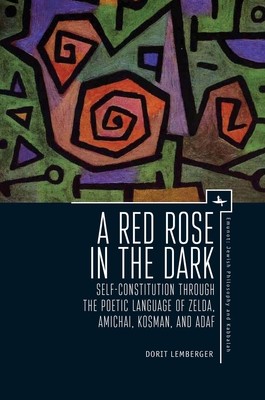
- We will send in 10–14 business days.
- Author: Dorit Lemberger
- Publisher: Academic Studies Press
- ISBN-10: 161811493X
- ISBN-13: 9781618114938
- Format: 15.6 x 23.4 x 2.4 cm, hardcover
- Language: English
- SAVE -10% with code: EXTRA
Reviews
Description
How can we characterize the uniqueness of poetic language? How can we describe the evasive enchantment of the paradox that is created by both universal and autobiographical expression? How does ordinary language function aesthetically while motivating the reader to acknowledge himself and to reveal how far his thinking belongs to the present, the future, or the past?
Ludwig Wittgenstein, the central founder of the linguistic turn and the inspiration of countless works, inspires the search of this book for various linguistic functions: Dialogic, aesthetic, and mystical. The search investigates four Modern Hebrew poets: Zelda, Yehuda Amichai, Admiel Kosman, and Shimon Adaf based on their family resemblance of intertextuality in their language-games. The book resists social-cultural categorizations as religious vs. secular poetry or Mizrahi vs. Ashkenazi literature, and instead, focuses on Wittgenstein's aspects, suggesting universal interpretation of these corpuses.
EXTRA 10 % discount with code: EXTRA
The promotion ends in 19d.21:20:28
The discount code is valid when purchasing from 10 €. Discounts do not stack.
- Author: Dorit Lemberger
- Publisher: Academic Studies Press
- ISBN-10: 161811493X
- ISBN-13: 9781618114938
- Format: 15.6 x 23.4 x 2.4 cm, hardcover
- Language: English English
How can we characterize the uniqueness of poetic language? How can we describe the evasive enchantment of the paradox that is created by both universal and autobiographical expression? How does ordinary language function aesthetically while motivating the reader to acknowledge himself and to reveal how far his thinking belongs to the present, the future, or the past?
Ludwig Wittgenstein, the central founder of the linguistic turn and the inspiration of countless works, inspires the search of this book for various linguistic functions: Dialogic, aesthetic, and mystical. The search investigates four Modern Hebrew poets: Zelda, Yehuda Amichai, Admiel Kosman, and Shimon Adaf based on their family resemblance of intertextuality in their language-games. The book resists social-cultural categorizations as religious vs. secular poetry or Mizrahi vs. Ashkenazi literature, and instead, focuses on Wittgenstein's aspects, suggesting universal interpretation of these corpuses.


Reviews